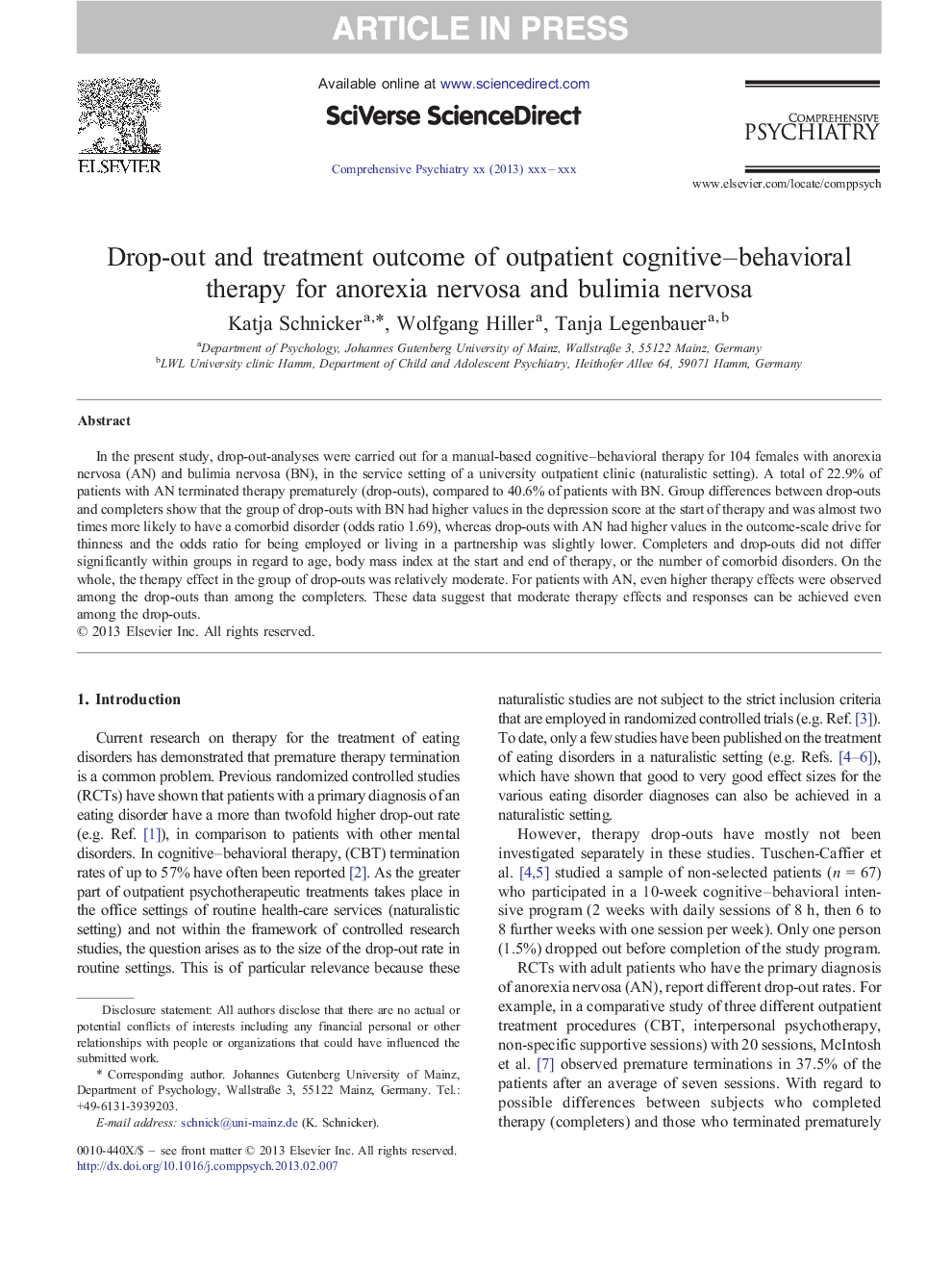| Article ID | Journal | Published Year | Pages | File Type |
|---|---|---|---|---|
| 10297574 | Comprehensive Psychiatry | 2013 | 12 Pages |
Abstract
In the present study, drop-out-analyses were carried out for a manual-based cognitive-behavioral therapy for 104 females with anorexia nervosa (AN) and bulimia nervosa (BN), in the service setting of a university outpatient clinic (naturalistic setting). A total of 22.9% of patients with AN terminated therapy prematurely (drop-outs), compared to 40.6% of patients with BN. Group differences between drop-outs and completers show that the group of drop-outs with BN had higher values in the depression score at the start of therapy and was almost two times more likely to have a comorbid disorder (odds ratio 1.69), whereas drop-outs with AN had higher values in the outcome-scale drive for thinness and the odds ratio for being employed or living in a partnership was slightly lower. Completers and drop-outs did not differ significantly within groups in regard to age, body mass index at the start and end of therapy, or the number of comorbid disorders. On the whole, the therapy effect in the group of drop-outs was relatively moderate. For patients with AN, even higher therapy effects were observed among the drop-outs than among the completers. These data suggest that moderate therapy effects and responses can be achieved even among the drop-outs.
Related Topics
Life Sciences
Neuroscience
Biological Psychiatry
Authors
Katja Schnicker, Wolfgang Hiller, Tanja Legenbauer,
